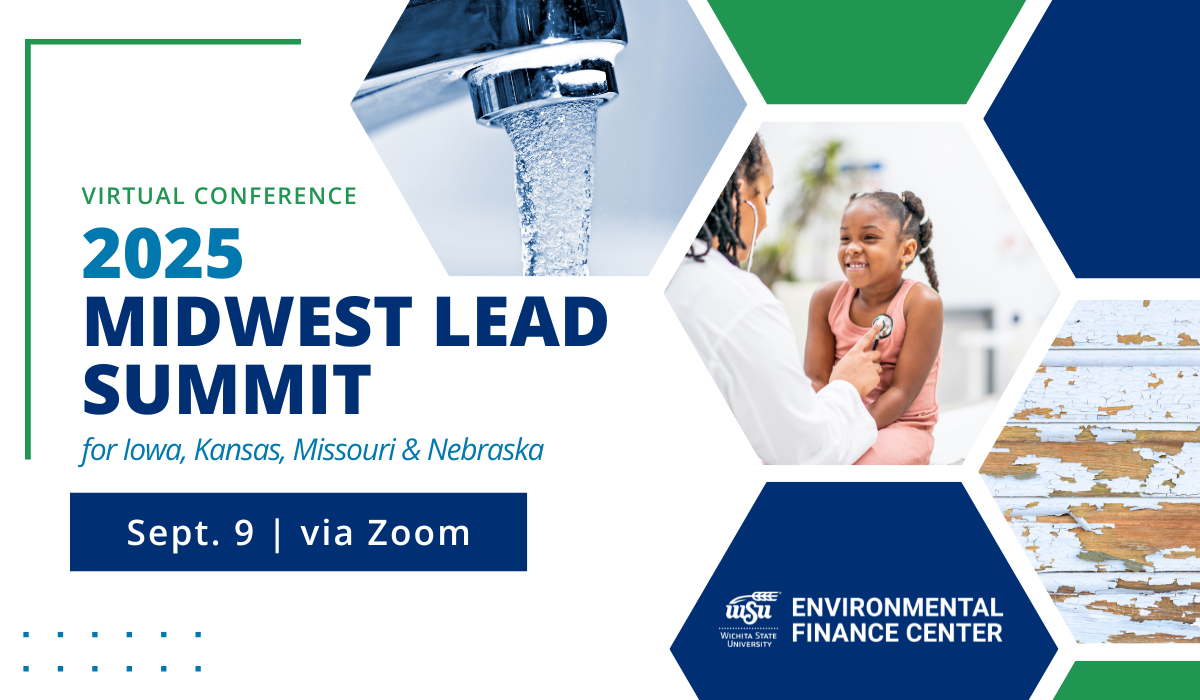Midwest Lead Summit 2025
Midwest Lead Summit 2025 | Sept. 9, 2025 | Virtual Conference via Zoom
The 2025 Midwest Lead Summit was held online on Sept. 9, 2025. The event brought together
over 200 public health experts, policymakers, and community leaders to address pressing
issues surrounding lead exposure and public health across the Midwest.
If you missed this event, want to rewatch a presentation or would like to view a session that you did not attend, please check out the presentation summaries, recordings and resources below!
Interested in more of the Environmental Finance Center's projects and events with a lead focus? Subscribe to our lead stakeholder email list for updates!
Presentations & Resources
"Lead in Drinking Water: Overlooked Sources and Vulnerable Consumers"
Presented by David Cwiertny, Director, Center for Health Effects of Environmental Contamination
In this informative and engaging presentation, David Cwiertny discusses overlooked sources of lead in drinking water and the risks they pose to vulnerable populations, particularly infants and residents of manufactured housing communities.
The presentation emphasizes that while federal efforts focus on removing lead service lines, other sources, such as household plumbing and premise fixtures, also contribute to contamination. Cwiertny’s team’s research utilizes metal data and predictive modeling to more accurately identify where lead enters water systems and to inform targeted interventions.
David also highlights problems with unregulated water kiosks, which can release lead despite advertising “purified” water, further undermining public trust. He concluded by stressing the need for broader testing, improved oversight, and stronger protections for communities disproportionately affected by lead exposure.
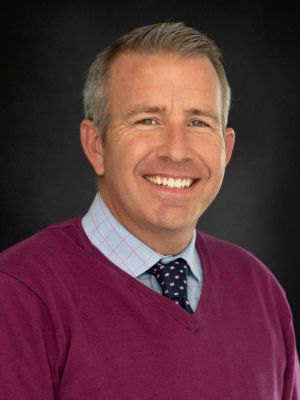 David Cwiertny, Director, Center for Health Effects of Environmental Contamination
David Cwiertny, Director, Center for Health Effects of Environmental Contamination
Dr. David Cwiertny is the William D. Ashton Professor in the Department of Civil and Environmental Engineering (CEE) and a Professor in the Department of Chemistry at the University of Iowa (UI). His research broadly focuses on water quality and water treatment, with particular interests at the intersection of public health and policy. At UI, he directs the State-funded Center for Health Effects of Environmental Contamination (CHEEC), which conducts research to identify, measure, and prevent adverse health outcomes from exposure to environmental contaminants. In 2016, he served as a Congressional Fellow for the American Association for the Advancement of Science (AAAS), working in the U.S. House of Representatives on the Committee for Energy and Commerce. He previously served as the founding Editor-in-Chief of Environmental Science: Water Research & Technology, a Royal Society journal. David holds a BS in Environmental Engineering Science and a minor in Chemistry from U.C. Berkeley (2000), and a PhD in Environmental Engineering from Johns Hopkins University (2006).
- Cherokee County National Priorities List (NPL) Superfund Site, Cherokee County, Kansas - Fact Sheet, July 2022
- Old Lead Belt in Southeastern Missouri (SEMO) and the Tri-State Mining District (TSMD) - Fact Sheet, August 2022
- EPA's State Implementation Guidance for Lead and Copper Rule Revisions (LCRR) Retained Elements
"Lessons Learned from Mississippi’s Sip Safe Program"
Presented by Justin Palmer, Mississippi State University Extension
In this presentation, Justin Palmer discusses Mississippi's Sip Safe Program, which tests for and addresses lead in drinking water at childcare centers and elementary schools. Active since 2019 and funded by the Water Infrastructure Improvements for the Nation Act, the program focuses on thorough fixture sampling, community education, and effective remediation.
Justin highlights challenges such as recruiting facilities, using clear language for public engagement, and adapting sampling protocols. He also introduces a new remediation initiative that reimburses facilities for replacing contaminated fixtures and shares encouraging data showing most samples are below concerning lead levels.
Looking ahead, the program aims to expand sampling coverage statewide, strengthen partnerships with utilities, and reduce childhood lead exposure.
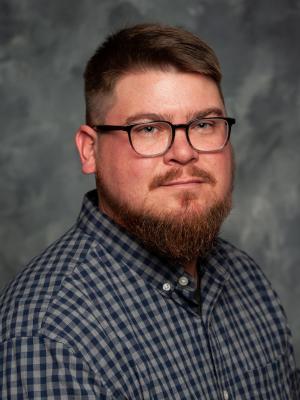 Justin Palmer, Research Associate, Mississippi State University Extension Service
Justin Palmer, Research Associate, Mississippi State University Extension Service
Justin Palmer is a research associate with the Mississippi State University Extension Service’s
SipSafe team at the Mississippi Water Resources Research Institute (MWRRI). For the past
three years, he has led the SipSafe program, which focuses on providing water screening in childcare centers across Mississippi.
His work is centered on reducing childhood lead exposure from drinking water, particularly in children ages 0 to 5.
"Preparing Public Health Professionals with Universities"
Presented by Lynelle Phillips, RN MPH, Associate Teaching Professor, Department of Public Health/College of Health Sciences, University of Missouri
This presentation focuses on Lynelle’s work to educate students about the public health implications of lead exposure through two case studies.
The first case study examines the Herculaneum lead smelter in Missouri, highlighting its environmental impact and the health risks associated with lead exposure in the community. This case also discusses how advocacy efforts led to the lowering of national ambient air quality standards, demonstrating the effectiveness of evidence-based policy changes.
The second case study looks at the ethically controversial Baltimore lead study. This case was used in an ethics course to engage students in debates about research consent and the implications of lead remediation in low-income communities.
Phillips emphasizes the ongoing relevance of lead exposure issues and connects historical cases to current challenges, such as the resurgence of mining activities and health disparities in low-income housing.
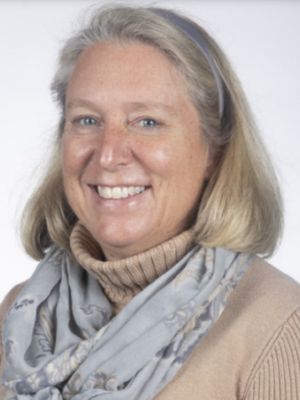 Lynelle Phillips, RN MPH, Associate Teaching Professor, Department of Public Health/College of Health Sciences, University of Missouri
Lynelle Phillips, RN MPH, Associate Teaching Professor, Department of Public Health/College of Health Sciences, University of Missouri
Lynelle Phillips received her RN in 1989 and MPH in 1992 and has worked for the Centers for Disease Control and Prevention in areas including environmental health, immunizations, and tuberculosis control. She also worked at the Missouri Department of Health and Senior Services as a nurse consultant and CDC field assignee to the tuberculosis program, and she has consulted for the Heartland National TB Center. She is currently serving as Associate Teaching Professor for the Department of Public Health in MU’s College of Health Science and teaches epidemiology, ethics, and environmental health courses for both the undergraduate and MPH programs.
-
Missouri Public Health Officials is a professional organization and potential resource for more general information on public health profession, including scholarships and awards.
- Case Study for the Omaha Lead Superfund Site, Innovative Partnerships and Holistic Remedial Approaches to Prioritize Community Health
- Missouri Department of Health and Senior Services Lead Exposure Risk Tool
- Bunker Hill, Idaho Super Fund site - Webpage and Information
- Press Release | EPA, DEQ, Panhandle Health to celebrate 50 years of protecting children from lead poisoning
"Raising Public Health Issues in Hispanic Communities"
Presented by Dr. Drew Colcher, Wichita State University
This presentation examines how language barriers affect healthcare access for Hispanic and indigenous-language-speaking communities in Kansas. It highlights the federal requirements for interpretation services and the gaps in enforcement, particularly in rural areas.
Research findings reveal issues such as limited interpreter training, overreliance on family for translation, and financial challenges faced by healthcare providers. Focusing on lead exposure risks in southeast Kansas, the presentation concludes with recommendations to strengthen interpreter certification, develop comprehensive language access plans, and enhance community outreach to promote equity in healthcare delivery.
 Dr. Drew Colcher, Wichita State University
Dr. Drew Colcher, Wichita State University
Drew Colcher (PhD) is program manager for Alce su Voz at Wichita State University. He received his PhD
in Hispanic Linguistics from the University of Texas at Austin in 2025, and his MA
in English Literature from Wichita State University in 2019.
Dr. Colcher’s work focuses on the sociolinguistics of Spanish in the U.S. and on addressing material inequalities created by ethnolinguistic discrimination, especially in health care and education. He has published in scholarly journals, academic volumes, and a compendium of Spanish creative writing, and he is co-author of the book Health Disparities and the Applied Linguist.
- Alce su Voz - Speak Out | Webpage
- Resource paper on enhancing multi-lingual access for health care services in Kansas
- Resource for individuals/healthcare providers seeking training and certification in Spanish language interpreters: CCHI
-
If you know of a community that needs lead-based paint information or presentations in Spanish, please reach out to gareis.alexander@epa.gov
"Lead Service Lines: Chemistry and Water Quality"
Presented by Dr. Edward Peltier, Associate Dean of Academic Affairs and Professor of Environmental Engineering at the University of Kansas School of Engineering
This presentation by Dr.Ted Peltier focuses on the risks associated with lead service lines in drinking water systems. Dr. Peltier explains why lead remains a significant issue, citing its historical use in plumbing, its long lifespan, and the high costs associated with replacement.
The talk discusses how lead contaminates water through mechanisms such as corrosion, stagnation, and galvanic reactions. It also provides updates on new sampling and monitoring rules under the revised Lead and Copper Rule.
Dr. Peltier emphasizes that the most effective strategies for mitigating lead exposure are full service line replacements and consistent corrosion control, particularly through orthophosphate treatment. He warns that partial replacements and disruptions to the system can often increase risks.
The presentation concludes that effectively addressing lead contamination requires careful management of water chemistry, replacement of infrastructure, and ongoing monitoring.
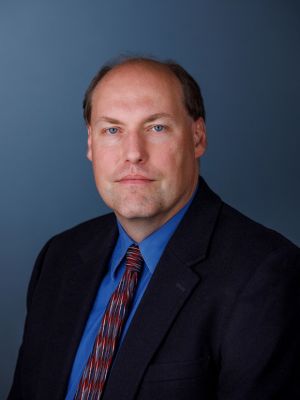 Dr. Edward Peltier, Associate Dean of Academic Affairs and a Professor of Environmental
Engineering at the University of Kansas School of Engineering
Dr. Edward Peltier, Associate Dean of Academic Affairs and a Professor of Environmental
Engineering at the University of Kansas School of Engineering
Ted Peltier is the Associate Dean of Academic Affairs and a Professor of Environmental Engineering at the University of Kansas School of Engineering, where he has taught since 2006. He holds a B.S. degree in Chemical Engineering from Princeton University and M.S. and Ph.D. degrees in Civil and Environmental Engineering from Northwestern University. His research areas include the chemistry and fate of metal contaminants in natural and engineering systems, monitoring and assessment of emerging pollutants, including microplastics and PFAS compounds, and innovative strategies for treatment and management of produced water and other high-salinity wastewaters. He co-authored a 2017 Water Research Foundation report evaluating the use of lining and coating technologies as an alternative to lead service line replacement.
"Reducing Human Exposure to Lead in Soil"
Presented by Dr. Ganga Hettiarachchi, K-State Soil and Environmental Chemistry
Dr. Ganga Hettiarachchi presents strategies to reduce human exposure to lead in soils, focusing on studies in Kansas City, Missouri, and Kansas City, Kansas. Her presentation explains that while soil excavation is a common approach, it is costly, disruptive, and impractical for widespread, mild contamination. Instead, her research explores reducing lead bioavailability—the fraction absorbed by humans—through soil amendments like phosphorus, which transforms lead into less soluble minerals.
Dr. Hettiarachchi shares how field and laboratory studies demonstrate significant reductions in lead bioaccessibility, with phosphorus treatments and soil covers offering promising and cost-effective mitigation options. Her presentation emphasizes community collaboration, practical applications for urban neighborhoods, and the importance of protecting children from lead exposure.
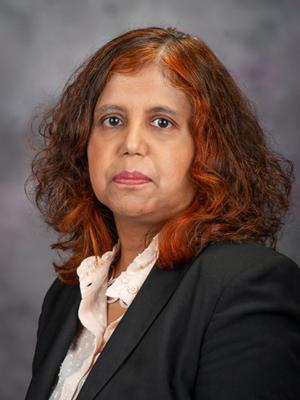 Dr. Ganga Hettiarachchi, Professor, Soil & Environmental Chemistry, K-State UniversityDr. Ganga Hettiarachchi is one of the world’s leading scientists in the fields of
trace metal and nutrient chemistry in soils. Her research at K-State focuses on understanding
the chemistry of both nutrient and contaminant elements in soils, with the goal of
developing solutions to agricultural or environmental problems. For example one of
her current projects, goal is to find ways to remediate underutilized, mildly contaminated
soils (often call “brownfields”) into soils suitable for productive use, such as community
gardens. Another project focuses on understanding reaction products of fertilizers
in soils to find ways to increase the fertilizer use efficiency. Full Bio
Dr. Ganga Hettiarachchi, Professor, Soil & Environmental Chemistry, K-State UniversityDr. Ganga Hettiarachchi is one of the world’s leading scientists in the fields of
trace metal and nutrient chemistry in soils. Her research at K-State focuses on understanding
the chemistry of both nutrient and contaminant elements in soils, with the goal of
developing solutions to agricultural or environmental problems. For example one of
her current projects, goal is to find ways to remediate underutilized, mildly contaminated
soils (often call “brownfields”) into soils suitable for productive use, such as community
gardens. Another project focuses on understanding reaction products of fertilizers
in soils to find ways to increase the fertilizer use efficiency. Full Bio"Children’s Mercy Healthy Homes Program"
Presented by Ryan Allenbrand, MS, CIEC, HHS, Environmental Hygienist, Program Manager of Health Homes at Children’s Mercy
This presentation focuses on the Healthy Homes Program at Children’s Mercy in Kansas City, which addresses childhood lead exposure and related health risks. Ryan discusses the health effects of lead poisoning, emphasizing that no level of lead is safe and that low-income and minority families are disproportionately impacted due to older housing and limited resources. He explains the program’s home investigation process, which includes health assessments, environmental testing, family education, and follow-up support.
The presentation also features a case study that highlights how social and economic factors complicate families’ ability to address hazards. This underscores the importance of education, collaboration, and creative low-cost solutions. The presentation concludes by stressing the need for partnerships, training, and community outreach to reduce exposure and improve children’s long-term health outcomes.
Ryan Allenbrand is the Program Manager for the Healthy Home Program at Children’s Mercy Kansas City. He has over 20 years of experience in forensic, environmental health, healthcare, and public health. His expertise includes working as an expert witness, technical advisor, and consultant in various sectors. Additionally, he serves on the Kansas Statewide Advisory Council for lead, Home Modification Coalition of Greater Kansas City, and the Human Trafficking Task Force at Children’s Mercy Hospital.
- EPA educational and outreach materials highlighting risks from heavy metals in cultural products, including spices, food products, cosmetics, cookware and other products. Also includes translated resources.
- Douglas County Nebraska Health Department's Avoid Lead Exposure from Spices Pamphlet
"Lead Poisoning Prevention Program Updates"
Speakers from state and national lead poisoning prevention programs provide updates. Click on a speaker below to skip to their presentation, or view the entire recording by clicking the dropdown "View Presentation" button below.
- Amanda Beckett, Iowa Health and Human Services
- Jessica Willard, Kansas Department of Health and Environment
- Teresa Wortmann, Missouri Department of Health and Senior Services
- Brian Coyle, Nebraska Department of Human and Health Services
- Cory Kokko, CDC, Agency for Toxic Substances and Disease Registry
General Resources
- EPA educational and outreach materials highlighting risks from heavy metals in cultural products, including spices, food products, cosmetics, cookware and other products. Also includes translated resources.
- Pb Possum Plays it Safe Kid's Activity and Parent Lead Information Book - English
- U.S. Environmental Protection Agency, Region 7 – Children’s Lead Safety Outreach Materials for Superfund Sites - Free Downloadable Template: Colorful Stickers or Buttons (Print on Avery Presta 94513 Round Labels.)
- U.S. EPA Lead Webpage in Spanish
- Lead Poisoning and Your Children Pamphlet - translated in Arabic, Chinese simplified, Chinese traditional, Dari, English, French, Haitian Creole, Korean, Pashto, Portuguese, Russian, Spanish, Tagalog, Vietnamese
- CDC Outreach Resoursces on prevention of childhood lead poisoning in English and Spanish
- National Center for Healthy Housing Lead Health Listservs
Missouri Resources
- Missouri Department of Health and Senior Services Lead Exposure Risk Tool
- Missouri Lead Risk Assessment Tool story map with more details and information
- Summary of community-level health data for Missouri
- Missouri Public Health Information Management System (MOPHIMS) -
A useful resource for accessing various forms of health data compiled by the Missouri Department of Health and Senior
- Be Alert! Lead Can Hurt! Activity Book for Children and Parents
- Missouri Lead Risk Assessors Regional Map and Contact Information
- Lead Posioning Fact Sheets/Brochures, Booklets and More
Nebraska Resources
- Douglas County Nebraska Health Department's Avoid Lead Exposure from Spices Pamphlet
General Resources
- EPA's State Implementation Guidance for Lead and Copper Rule Revisions (LCRR) Retained Elements
- EPA educational and outreach materials highlighting risks from heavy metals in cultural products, including spices, food products, cosmetics, cookware and other products. Also includes translated resources.
- Pb Possum Plays it Safe Kid's Activity and Parent Lead Information Book - English
- U.S. Environmental Protection Agency, Region 7 – Children’s Lead Safety Outreach Materials for Superfund Sites - Free Downloadable Template: Colorful Stickers or Buttons (Print on Avery Presta 94513 Round Labels.)
- U.S. EPA Lead Webpage in Spanish
- Lead Poisoning and Your Children Pamphlet - translated in Arabic, Chinese simplified, Chinese traditional, Dari, English, French, Haitian Creole, Korean, Pashto, Portuguese, Russian, Spanish, Tagalog, Vietnamese
- CDC Outreach Resoursces on prevention of childhood lead poisoning in English and Spanish
- National Center for Healthy Housing Lead Health Listservs
This project has been funded wholly or in part by the United States Environmental Protection Agency under a cooperative agreement with the Environmental Finance Center at Wichita State University. The contents of this website do not necessarily reflect the views and policies of the Environmental Protection Agency, nor does the EPA endorse trade names or recommend the use of commercial products mentioned.


